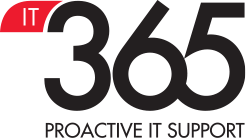 Managing the technology demands of home-working employees is just one of these challenges but it is an important one, particularly for smaller businesses. In the rush to get home workers set up and productive, IT security can easily be overlooked when it should be a top priority. The easy, quick and cheap option would appear to be to let employees use their own equipment, at least in the short-term. Personal computers may, however, already be compromised or riddled with viruses, missing core software and functionality, and undoubtedly more difficult to manage by the company’s IT department.
Managing the technology demands of home-working employees is just one of these challenges but it is an important one, particularly for smaller businesses. In the rush to get home workers set up and productive, IT security can easily be overlooked when it should be a top priority. The easy, quick and cheap option would appear to be to let employees use their own equipment, at least in the short-term. Personal computers may, however, already be compromised or riddled with viruses, missing core software and functionality, and undoubtedly more difficult to manage by the company’s IT department.
A better option would be to provide employees with equipment. The control that this gives IT departments and business managers delivers far greater efficiency and security. Without this control, even just setting up the basics such as a broadband Internet connection to the company’s network and services for email, file-sharing, text messaging, Voice over IP (VoIP), videoconferencing and Web access can become time-consuming and complex for those with responsibility for IT. In smaller companies, this responsibility may lie with owners and Directors who lack the expertise, time and experience to provide the seamless integration that is required.
Enabling staff to work effectively from home
During the pandemic, many companies have been forced to deploy home-working call agents to maintain vital customer services for their business. This often requires computer-telephony integration (CTI) together with appropriate software, so calls can be managed and integrated with the company’s CRM system on the corporate network. All of these difficult management, financial, technical and logistical challenges are being faced at a time when many businesses are dealing with the most difficult trading environment in living memory.
IT Security remains the biggest challenge
Against this background, and in the context of a business in survival mode, it isn’t surprising that IT security is often overlooked or given insufficient attention. Even in normal times, IT security is the biggest challenge facing small and medium-sized businesses when enabling a mobile workforce with technology and communications solutions. Mobile devices are often used in public places, such as coffee shops, libraries, airports and hotels, where Wi-Fi networks are typically unsecured and open to anyone within range.
In today’s new reality, these devices are more likely to be used on insecure home networks that are shared with home-schooling children, teenagers gaming and interacting through social media, and on networks shared with a vast array of IP-enabled devices. As James Bull, Group CEO at IT Support 365 points out; “In the rush to set up home-workers and to get them productive, it’s easy to see how basic security protocols are being overlooked. Seemingly insignificant endpoint security breaches can result in wide-ranging and damaging consequences for the whole company. It is vitally important that companies take a holistic approach to IT security that encompasses every connected device and network, wherever it is located.”.
What an effective security solution looks like will vary from company to company. Many use encrypted Virtual Private Networks (VPNs), that secure data travelling between corporate networks and remote devices, combined with comprehensive endpoint security. All should have effective protocols in place for managing access to systems, including complex passwords, multi-factor authentication, Wi-Fi security systems, secure cloud storage, etc. to mitigate risks.
Training is essential
All of the systems, software and hardware protections are rendered ineffective, of course, if users don’t follow protocols and instructions consistently. So clear policies, procedure and guidance should be in place for all employees with adequate training to ensure that they understand the risks and consequences of non-compliance for the company and the individual. In a world where loss of data and compromised security can have far-reaching legal consequences as well as reputational and commercial damage, it is vital that employees understand the nature of the risks they face and the role each and every one of them plays in the security of the company as a whole.
At a time when so many changes in working practices and procedures have been forced on many of us, it wouldn’t be surprising if you have concerns or questions about the way your IT infrastructure and security is set up and operating. Please contact us if you would like to discuss IT support for your business, whether you have deployed remote workers or not – we would be happy to provide help and advice.
